Introduction: Are you a dog parent curious about adding venison to your furry friend’s diet? Venison, derived from deer meat, often sparks questions regarding its suitability for canine consumption. As a responsible pet owner, understanding the benefits and potential risks of feeding venison to your dog is crucial. Let’s delve into this topic and uncover everything you need to know about dogs and venison.
Contents Overview
What is Venison?
Venison is meat from deer, typically wild deer hunted for food. It’s known for its lean, red meat that is rich in protein and nutrients. Venison can be sourced from various deer species, including white-tailed deer, elk, or moose. This meat is often considered a healthier alternative to traditional meats like beef or pork due to its lower fat content. Venison is commonly used in cooking and can be prepared in various dishes such as stews, roasts, or steaks.
Nutritional Value of Venison
Venison boasts a high nutritional value, offering essential nutrients beneficial for dogs. It is rich in protein, providing the building blocks for muscle development and maintenance. Additionally, venison contains essential vitamins and minerals such as iron, zinc, and B vitamins, which support overall health and vitality in dogs. With its lean nature and nutrient density, venison can be a valuable addition to your dog’s diet, promoting their well-being and vitality.
Is Venison Safe for Dogs?
Yes, dogs can eat venison safely when it is properly sourced, cooked, and served in moderation. Venison is a lean protein source that offers various health benefits for dogs. However, it’s crucial to consider a few factors to ensure your dog’s safety:
- Quality Sourcing: Choose high-quality, fresh venison from reputable sources to minimize the risk of contamination or parasites.
- Proper Preparation: Cook venison thoroughly to eliminate any potential pathogens or parasites. Avoid seasoning with ingredients like garlic or onion, which can be toxic to dogs.
- Moderation: Serve venison to your dog in moderation to prevent digestive upset or nutritional imbalances. By following these guidelines, you can safely incorporate venison into your dog’s diet and provide them with a nutritious and delicious treat.
Potential Benefits of Venison to Dogs
Let’s delve into the potential benefits in detail.
- Highly Digestible Protein
Venison is rich in high-quality protein, which is crucial for your dog’s muscle development, repair, and overall health. Compared to some other meats, venison is often easier for dogs to digest, making it suitable for pups with sensitive stomachs or food allergies.
- Low in Fat
Venison typically contains less fat than other meats like beef or pork. For dogs prone to weight gain or those with pancreatitis, a low-fat diet can be beneficial. Venison provides the necessary protein without excessive fat content, helping to maintain a healthy weight for your canine companion.
- Rich in Nutrients
Venison is packed with essential nutrients, including vitamins such as B12, B6, and niacin, as well as minerals like zinc, iron, and selenium. These nutrients play vital roles in your dog’s overall health, supporting immune function, energy production, and cellular repair.
- Potential Allergy Relief
Many commercial dog foods contain common allergens such as chicken, beef, or grains. Venison offers a novel protein source, making it an excellent option for dogs with food sensitivities or allergies. By introducing venison into your dog’s diet, you may alleviate allergic reactions and gastrointestinal issues.
- Supports Joint Health
Venison contains natural compounds like glucosamine and chondroitin, which are known for their joint-supporting properties. These substances help maintain cartilage health and reduce inflammation, making venison an ideal choice for dogs prone to joint issues or arthritis.
- Balanced Omega-3 and Omega-6 Fatty Acids
Venison provides a balanced ratio of omega-3 to omega-6 fatty acids, essential for promoting healthy skin and a shiny coat in dogs. These fatty acids also offer anti-inflammatory benefits, supporting overall well-being and reducing the risk of skin allergies or irritations.
- Palatable Option
Many dogs find the taste of venison irresistible, making it a palatable choice for picky eaters. The rich, gamey flavor of venison can add variety to your dog’s diet and encourage them to eat enthusiastically, ensuring they receive the necessary nutrients for optimal health.
- Environmental Sustainability
Opting for venison as a protein source for your dog may have positive environmental implications. Compared to conventional livestock farming, deer hunting for venison production has a lower environmental footprint, including reduced greenhouse gas emissions and land use.
Potential Risks of Feeding Venison to Dogs
Understanding these factors can help you make informed decisions about your dog’s nutrition and well-being.
- Risk of Bacterial Contamination
Like other raw meats, venison can harbor harmful bacteria such as Salmonella and E. coli, posing a risk of foodborne illness to both dogs and humans. Proper handling, storage, and preparation are crucial to minimize the risk of bacterial contamination. Ensure that venison is fresh, properly cooked, and stored at safe temperatures to reduce the likelihood of foodborne pathogens.
- Potential for Parasites
Wild game, including deer, may carry parasites such as Toxoplasma gondii and Neospora caninum, which can infect dogs upon consumption. These parasites can cause a range of health issues, including gastrointestinal upset, neurological symptoms, and reproductive problems. To mitigate the risk of parasitic infections, consider freezing venison for a designated period before feeding it to your dog, as freezing can kill certain parasites.
- Allergic Reactions
While venison is considered a novel protein source for dogs with food allergies or sensitivities, some dogs may still develop allergic reactions to this meat. Allergic responses can manifest as itching, skin inflammation, digestive disturbances, or respiratory issues. If you suspect your dog is allergic to venison, discontinue feeding it and consult with your veterinarian to explore alternative dietary options.
- Bone Fragments
Feeding dogs raw bones, including those found in venison, can pose a choking hazard or cause gastrointestinal obstructions or perforations. While some proponents of raw feeding advocate for the inclusion of raw bones in a dog’s diet for dental health and mental stimulation, it’s essential to supervise your dog closely when offering bones and choose appropriate sizes and types to minimize the risk of injury.
- Overconsumption of Protein
Excessive consumption of protein-rich foods like venison can strain a dog’s kidneys and contribute to the development or progression of kidney disease, particularly in dogs with preexisting renal issues or senior dogs. Ensure that venison is incorporated into your dog’s diet in appropriate portions and balanced with other nutrient sources to prevent protein overload.
- Veterinary Guidance
Before introducing venison or any new food into your dog’s diet, consult with your veterinarian, especially if your dog has underlying health conditions or dietary sensitivities. Your veterinarian can provide personalized recommendations based on your dog’s individual needs, helping you make informed decisions regarding their nutrition and overall well-being.
Safe Ways to Feed Venison to Dogs
Let’s explore safe ways to feed venison to dogs.
- Choose High-Quality Venison
Opt for high-quality venison sourced from reputable suppliers. Look for venison that is fresh, free from additives or preservatives, and intended for human consumption. Avoid venison that has been processed with added spices, seasonings, or marinades, as these ingredients may not be suitable for dogs.
- Cook Thoroughly
Cook venison thoroughly before feeding it to your dog to eliminate any potential bacteria or parasites. Raw or undercooked meat can pose a risk of foodborne illness to dogs and humans alike. Cook venison to an internal temperature of at least 160°F (71°C) to ensure it is safe for consumption.
- Remove Bones
Before serving venison to your dog, carefully remove any bones to prevent choking hazards, gastrointestinal obstructions, or injuries. Cooked bones, in particular, can splinter and cause harm to your dog’s digestive tract. Discard bones safely or consider offering raw, meaty bones under close supervision as a separate treat.
- Introduce Gradually
When introducing venison into your dog’s diet for the first time, do so gradually to monitor their tolerance and prevent adverse reactions. Start with small amounts of venison mixed with your dog’s regular food, gradually increasing the proportion over several days. Monitor your dog for any signs of digestive upset, allergic reactions, or intolerance.
- Monitor Portion Sizes
Monitor your dog’s portion sizes when feeding them venison to ensure they receive a balanced diet. Venison should be incorporated as part of a varied and nutritionally complete meal plan, alongside other protein sources, carbohydrates, vegetables, and essential nutrients. Adjust portion sizes based on your dog’s size, age, activity level, and individual nutritional needs.
- Rotate Protein Sources
Rotate venison with other protein sources in your dog’s diet to provide dietary variety and prevent nutrient imbalances or sensitivities from developing. Incorporate lean meats, poultry, fish, and plant-based proteins to offer a diverse range of nutrients and flavors. Consult with your veterinarian to determine the most appropriate protein sources for your dog’s specific dietary requirements.
- Consult with Your Veterinarian
Before feeding venison or any new food to your dog, consult with your veterinarian, especially if your dog has underlying health conditions, dietary sensitivities, or specific nutritional needs. Your veterinarian can provide personalized recommendations and guidance based on your dog’s requirements, ensuring their safety and well-being.
When to Avoid Venison to Dog
- Allergic Reactions: If your dog has a known allergy or sensitivity to venison, it’s best to avoid feeding it to them to prevent adverse reactions such as itching, digestive upset, or respiratory issues.
- Digestive Issues: If your dog has a history of gastrointestinal problems or food intolerances, avoid introducing venison into their diet without consulting with your veterinarian first.
- Undercooked Meat: Avoid feeding raw or undercooked venison to your dog to minimize the risk of foodborne illness from bacteria or parasites.
- Bones Present: If venison contains bones that could pose a choking hazard or risk of gastrointestinal injury, it’s safer to avoid feeding it to your dog or ensure that bones are removed thoroughly before serving.
- Pregnancy or Nursing: Pregnant or nursing dogs may have specific dietary requirements, and introducing new foods like venison without veterinary guidance could impact their health or the health of their puppies.
- Renal Issues: Dogs with kidney disease or renal issues may require a specialized diet with restricted protein content, and venison’s high protein levels may not be suitable for them. Consult with your veterinarian before feeding venison to dogs with renal concerns.
- Veterinary Recommendation: If your veterinarian advises against feeding venison to your dog due to specific health conditions or concerns, it’s essential to follow their guidance and explore alternative dietary options.
Safe and Suitable Alternatives of venison for Dogs
For dogs with allergies, sensitivities, or dietary restrictions, there are several safe and suitable alternatives to venison. Lean meats such as turkey, chicken, or lean cuts of beef can provide high-quality protein without triggering allergic reactions. Fish, such as salmon or mackerel, offer omega-3 fatty acids for skin and coat health. Additionally, plant-based proteins like lentils, chickpeas, or quinoa can serve as nutritious alternatives for dogs with meat intolerances. It’s essential to choose high-quality, balanced diets tailored to your dog’s individual needs and consult with your veterinarian to ensure they receive adequate nutrition.
Bottom Line
In conclusion, while venison can be a nutritious addition to your dog’s diet, it’s essential to proceed with caution and follow proper guidelines. By understanding the benefits and risks associated with feeding venison to your furry friend, you can make informed decisions to ensure their health and well-being. Remember to prioritize sourcing quality venison, proper preparation, and moderation in feeding. Always monitor your dog for any adverse reactions and consult your veterinarian if you have any concerns. With responsible feeding practices, you can safely incorporate venison into your dog’s diet and provide them with a delicious and nutritious treat.


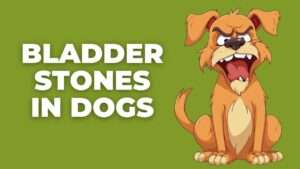
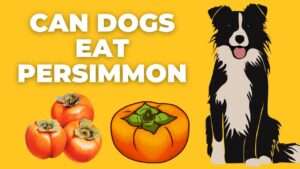

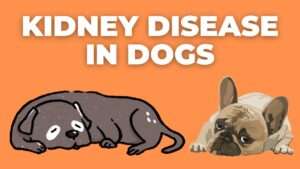

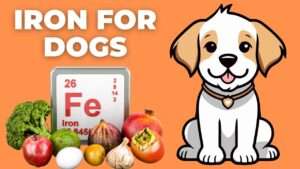



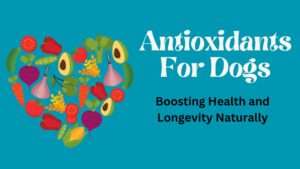
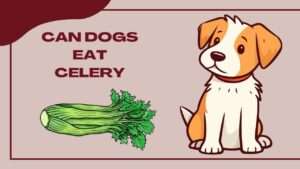

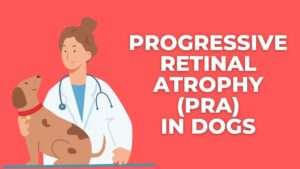
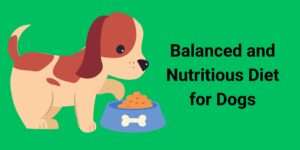
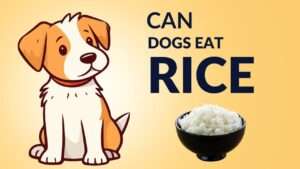
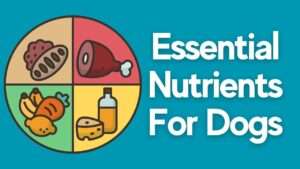
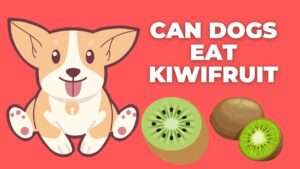

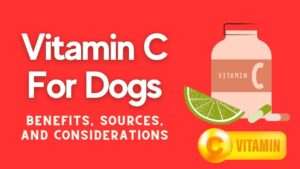



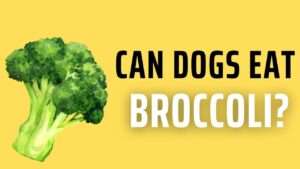

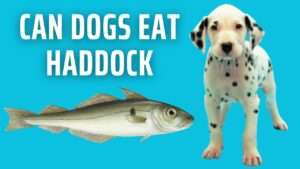

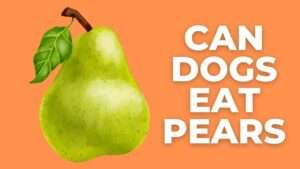







+ There are no comments
Add yours